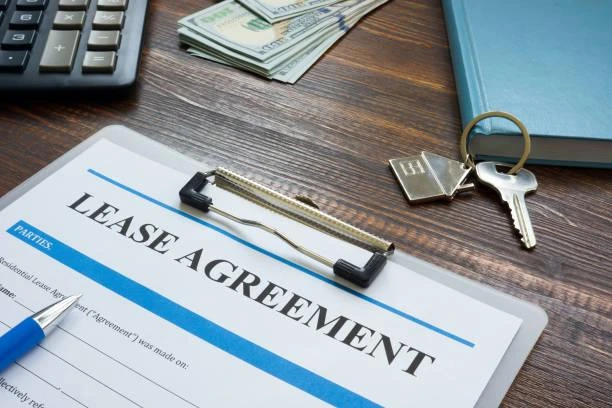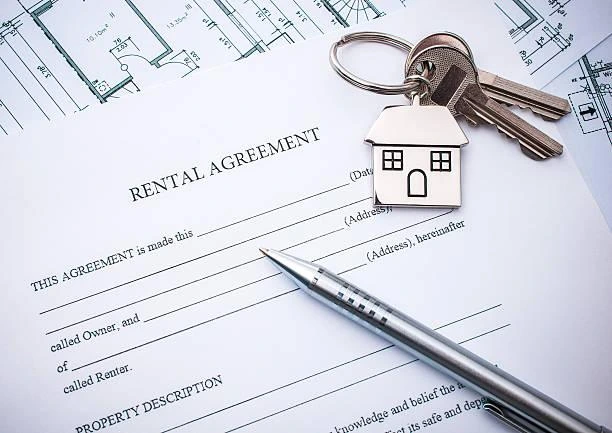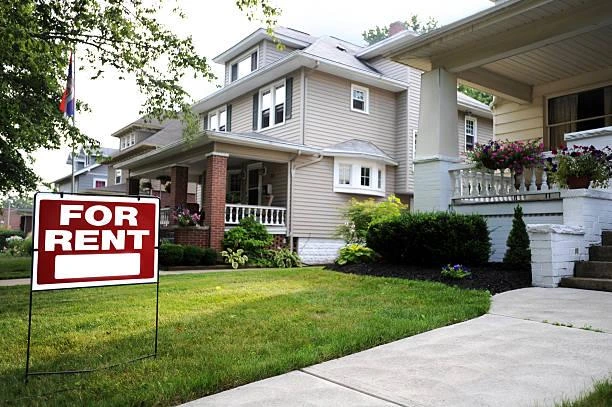Can Someone Live With You Without Being On The Lease?
Can Someone Live With You Without Being On The Lease? If you’re about to sign a lease, you might be wondering if everyone in your household needs to be listed on it. Alternatively, you may already be renting and want to have a friend, roommate, parent, or partner move in with you. In such cases, it’s crucial to understand the lease agreement terms and conditions, and whether you need landlord approval for new occupants.
Can Someone Live With You Without Being On The Lease?
This question also comes up when children in the household turn 18 or when college students return home for summer break. Many renters in these situations wonder if it’s possible for someone to live in an apartment without being on the lease. Unauthorized tenants in rental properties can lead to issues with lease and sublease agreements, so it’s important to clarify these details with your landlord to avoid potential violations.
Can Someone Reside With You Without Being Listed On The Lease?

Not everyone living in an apartment needs to be officially listed on the lease, but having someone live with you without being on the lease can create complications, especially when it comes to long-term guests. Whether someone can live with you without being on the lease depends on factors like your lease terms, their relationship to you, their age, and how long they intend to stay.
Usually, adults looking to be added to the lease must apply and undergo a background check per the landlord’s protocol. Landlords might also ask minors to be listed as occupants, even if they don’t sign. Not including co-tenants in the lease can breach terms, leading to penalties or eviction. Clarify these rules with your landlord to comply and prevent issues.
If you’re living in a property managed under housing assistance programs like Section 8, the rules regarding unauthorized occupants can be even stricter. Learn more about Section 8 regulations and living arrangements without being on the lease
Review Your Lease Terms
Your lease is the definitive source for whether someone can live with you without being listed on it. If you’re unclear about your current lease or a new one, ask your landlord or property manager for clarification.
Most leases require all adults living in the property to be included, either as co-tenants or occupiers. Co-tenants share responsibility for rent, property damage, and legal issues, while occupiers do not have these obligations. Ensuring roommate lease compliance is crucial to avoid any potential issues.
Some leases may specify that only family members can be added, preventing non-family roommates and unapproved occupants in rental properties. Additionally, certain leases may indicate a rent increase if another person moves in. It’s essential to understand lease agreement guest restrictions and leaseholder responsibilities to maintain a good relationship with your landlord and avoid penalties.
What Does It Mean to “Reside” in a Rental Property?

Landlord tenant regulations often include specifics on housing lease guest policies. These guidelines define residency and outline rules for guests in rental units, ensuring lease compliance and preventing disputes. Understanding these regulations is key for maintaining a positive landlord-tenant relationship.
State laws vary on guests and tenants’ rights. Some states define when a guest becomes a tenant, while others let landlords set guest policies. If a guest stays beyond the allowed period, they’re often considered a resident under lease terms. To comply, those planning an extended stay should apply for a lease before the guest period expires. This ensures transparency and meets landlord expectations.
In some states, like Michigan, landlords may have specific rules about who can live in their apartments without being on the lease. Understanding these variations is essential for compliance. Discover more about felon-friendly housing options in Michigan and their lease requirements
Guest Or Tenant State Laws Vary In Defining These Statuses
When someone stays with you as a guest for an extended period, they may eventually acquire tenant rights, even if they were initially considered just a guest. This shift could lead to them being an unauthorized tenant, which may result in eviction. Violating your lease terms by allowing unauthorized tenants or guests can also put you at risk of eviction.
In most states, the guidelines for guests are outlined in the lease agreement and must be adhered to. However, some states have specific regulations that diverge from this general principle. It’s important to understand these nuances to ensure compliance and avoid potential legal consequences with your landlord.
Certain States Have Laws Specifying When Guests Are Legally Recognized As Tenants
In some U.S. states, guests can gain tenant rights if they use the property for mail or contribute to rent, even without being on the lease. This unauthorized tenancy allows landlords to evict both the guest and potentially the leaseholder for violating lease terms. Understanding state laws helps tenants comply with leases and avoid eviction risks.
Each state sets specific guidelines on how long a guest can stay and under what conditions they might gain tenant status, based on factors like duration of stay and financial contributions. Tenants must understand these regulations to follow lease agreements properly and prevent legal issues with landlords. Clarifying these rules ensures tenants comply with lease terms and maintain positive relationships with their landlords.
Each state sets rules on when a guest becomes a legal tenant based on their stay length and contributions. For instance, in California, staying more than 14 days in 6 months or 7 consecutive nights grants tenancy rights.
In Texas, using the property as a mailing address or paying rent/utilities can also confer tenant rights without being on the lease. Understanding these guidelines helps tenants follow lease terms, maintain good landlord relations, and avoid legal issues.
For individuals with certain records, residency restrictions might also affect their ability to live in a property without being listed on the lease. Read more about housing options with no sex offender residency restrictions
In Georgia, for example, lease agreements may include clauses that strictly regulate the number of occupants and their legal status. Learn more about housing for felons in Georgia and their rental policies.
Do Children Need To Be Listed On The Lease?

Because children cannot legally sign a lease, landlords might require that all children residing in the rental unit be named on the lease if permitted by state law. This helps landlords comply with lease occupancy rules and federal or local occupancy limits, and prevents discrimination against families with children.
When children turn 18, they usually need to be added to the lease as occupants. Some leases may allow for adult children to be included during the next lease renewal. If your college-aged child returns home for extended breaks that go beyond the allowed guest stay, they should also be listed on the lease to avoid tenant lease violations.
To understand what steps to take, speak with your landlord before your child turns 18. Generally, adding your child to the lease does not require them to pass a background or credit check. Ensuring all residents are listed helps avoid issues with unlisted occupants lease and complies with lease agreement additional residents terms.
Can My Boyfriend Live With Me If He’s Not On The Lease?

Navigating living arrangements with a partner can be complex, especially concerning lease agreements and landlord policies. Some landlords permit additional adults as named occupants without signing the lease, though they may conduct background checks. Others require all adults to sign the lease to be recognized as legal tenants.
Choosing whether to include your boyfriend on the lease hinges on several key factors. If he intends to contribute financially, listing him ensures legal responsibilities for rent and property damages, offering him protections under the lease. Additionally, if his income is needed to meet rental criteria, disclosing his status to the landlord is essential for lease compliance.
Discussing these details openly with your landlord can clarify expectations and prevent lease violations. Transparency fosters a positive landlord-tenant relationship and ensures compliance with the rental agreement, benefiting both you and your partner in the long term.
Can I Face Eviction For Having Someone Live With Me?
You can face eviction if you violate your lease by allowing someone to live with you who isn’t approved or listed. Adhering to lease rules is essential to avoid eviction, which can have significant repercussions. If your lease doesn’t outline guest policies, you typically won’t be at risk of eviction for having an unlisted guest.
For those struggling with rental agreements or facing eviction concerns, second-chance apartments may offer a viable solution. Explore second-chance housing options in Fort Worth, Texas, and how they handle lease agreements
Lease Agreements Specify Tenant Obligations & Property Rules

Rent Payment Terms
Rent payment terms are a crucial aspect of any lease agreement. They outline the specifics of rent payment, including the amount due, the due date, and the preferred method of payment.
Occupancy Limits & Rules
Occupancy limits and rules are also detailed in lease agreements, specifying who can reside on the property and the maximum number of occupants allowed at any given time. It’s essential for all tenants and co-tenants to be aware of and comply with these provisions.
Rental Property Maintenance
Rental property maintenance is another important responsibility outlined in leases. As the primary tenant or co-tenant, ensuring the property remains in good condition is necessary. This includes promptly reporting any damages to the landlord to facilitate timely repairs.
Conclusions
To sum up, Yes, someone can live with you without being on the lease, but only if your lease allows it. Lease occupancy rules typically dictate who can reside in the rental property. If you allow another person to move in without the approval of your landlord, you’ll violate the terms of your lease and could face eviction.
When children in your household become adults at 18, most landlords will expect you to add them to the lease as soon as possible or when your lease is up for renewal. This process involves updating the lease agreement to include additional residents. However, failing to list all occupants could lead to a tenant lease violation and potential eviction if not rectified promptly.
Frequently Asked Questions
-
Can someone live with you without being on the lease in the UK?
Yes, someone can live with you without being on the lease, but this depends on your lease agreement and the type of housing. Some agreements require all occupants to be declared to the landlord. Failing to do so might breach your lease terms. Check with your landlord or housing provider for clarity.
-
Can someone live with you without being on the lease in Ontario, Canada?
In Ontario, tenants are typically allowed to have guests or even roommates without them being on the lease. However, if the person starts living there permanently, you might need to inform your landlord, especially in rent-controlled properties, as it could affect the terms of the rental agreement.
-
Can someone live with you without being on the lease in Texas?
In Texas, lease agreements often specify whether additional occupants need to be disclosed to the landlord. While short-term guests are generally acceptable, having someone move in permanently without notifying the landlord could violate the lease terms.
-
Can someone live with you without being on the lease in Florida?
Similar to Texas, in Florida, having someone live with you permanently without being on the lease may breach your rental agreement. Temporary guests are usually fine, but permanent occupants should be disclosed to avoid potential issues with the landlord.
-
Can someone live with you without being on the lease in Minnesota?
In Minnesota, the rules vary depending on your rental agreement. Tenants are generally allowed to have guests, but if someone lives with you long-term, you might need to inform the landlord and ensure their residency aligns with the lease.
-
Can someone live with you without being on the lease in NSW, Australia?
In New South Wales (NSW), tenants can have guests stay temporarily, but if someone intends to move in permanently, the landlord usually needs to be informed. Failure to notify the landlord might breach your tenancy agreement.
-
Can someone live with you without being on the lease in Victoria, Australia?
In Victoria, adding a long-term occupant to your rental property typically requires landlord approval. Temporary guests are allowed, but it’s best to check your lease terms to avoid issues.
-
Can someone live with you without being on the lease in Queensland (QLD), Australia?
In Queensland, tenants must notify their landlord if someone moves in permanently, even if they are not added to the lease. Temporary stays are usually acceptable, but exceeding occupancy limits can lead to problems.
-
Can someone live with you without being on the lease in California?
In California, landlords often require notification if someone moves in permanently. Having someone live with you without being on the lease could violate the rental agreement and lead to penalties or eviction.
-
How long can someone live with you without being on the lease?
The allowable duration depends on local laws and your lease agreement. Most landlords consider stays exceeding 14–30 days as permanent residency, which typically requires notifying the landlord. Always review your lease terms and seek approval for long-term guests to avoid breaching the agreement.
-
Can I be evicted for having someone live with me?
Yes, you can be evicted if having someone live with you violates your lease. Many leases explicitly state that all occupants must be listed and approved by the landlord. Unapproved long-term occupants could be considered a lease violation, leading to eviction or legal action.
-
Can my boyfriend live with me without being on the lease?
In most cases, your boyfriend can live with you, but you must inform your landlord if the lease requires disclosing additional occupants. Some leases allow a partner to stay without formal approval, but long-term cohabitation often requires landlord consent or an updated lease.
-
What happens if my boyfriend is living with me but not on the lease?
If your boyfriend is living with you and not on the lease, he may not have legal tenant rights. You could face penalties or eviction for not disclosing his residency if it violates the lease. It’s best to inform your landlord and ensure compliance with your rental agreement.
-
What happens if someone’s name is on the lease but they are not living there?
A person whose name is on the lease but is not living at the property remains legally responsible for the lease terms, including rent payments and damages. The landlord can hold them accountable even if they are absent. Subletting or lease adjustments may be necessary to address this situation.
-
Can you live in an apartment under someone else’s name?
Living in an apartment under someone else’s name without being on the lease is typically against rental policies. This practice, known as unauthorized subletting, can lead to eviction for both parties and legal consequences. Always seek landlord approval for any subletting arrangements.
-
What rights do I have if my name is not on the lease?
If your name is not on the lease, your rights are limited. In some jurisdictions, long-term occupants may gain certain protections, such as being considered a tenant-at-will, but these rights are often less robust than those of a leaseholder. To secure full tenant rights, consider being added to the lease.
-
Do I have to tell my landlord if someone moves in with me?
Yes, most lease agreements require tenants to inform their landlord if someone moves in. Even if the new occupant is not added to the lease, landlords need this information to ensure compliance with occupancy limits, safety regulations, and lease terms.







One Comment